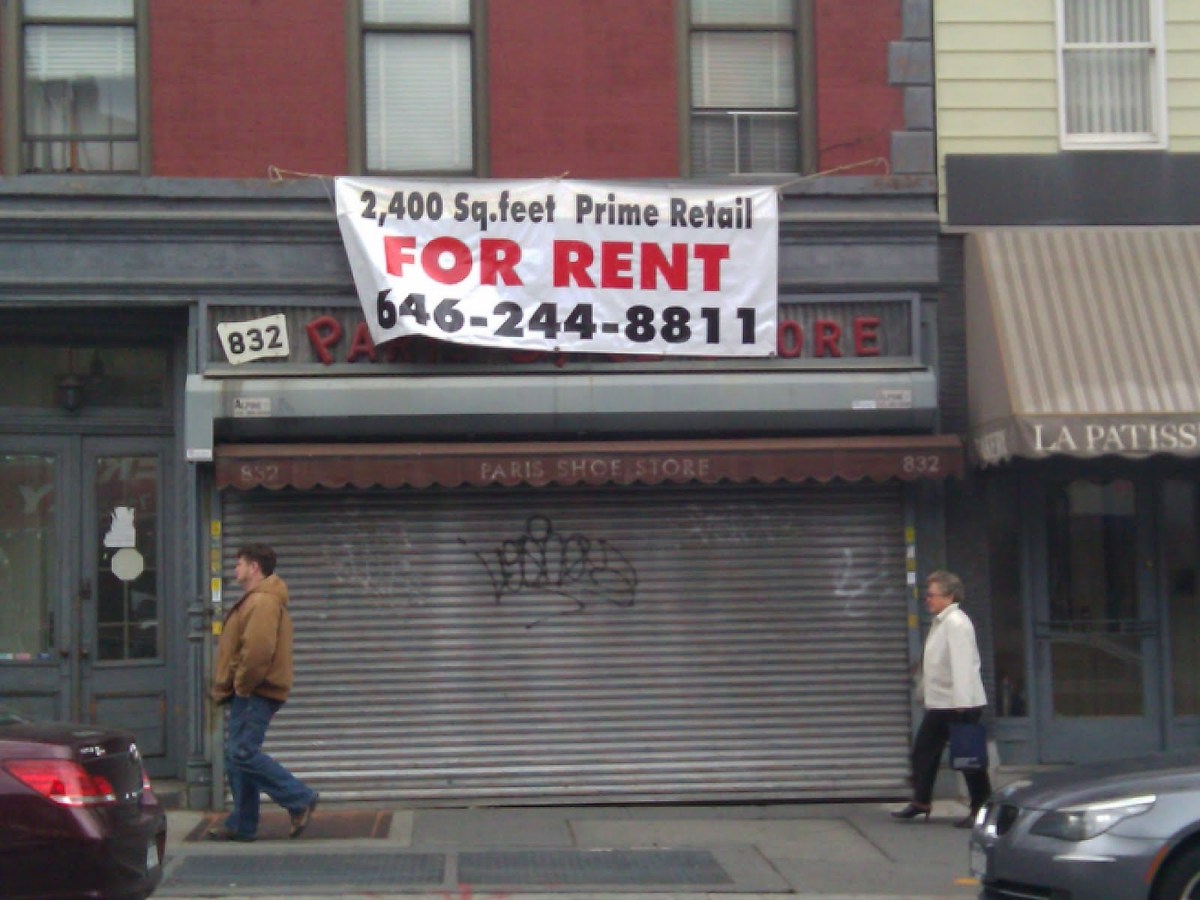BY DAVID GRUBER | It is time to start a real conversation about a small-store retail rent-stabilization program.
Many neighborhoods, not only in Manhattan, but also in other high-use commercial districts in all the boroughs, are being shred apart as small mom-and-pop stores just cannot fight back the tide of the enormous increase of commercial retail rents in recent years.
Neighborhoods are losing essential residential services, such as shoe-repair shops, barber shops, small groceries and the like, replaced by the new darlings of retail business: bars, restaurants, storefront banks, A.T.M.’s and mega-drug emporiums.
This is not just a matter of business-as-usual urbanism where one can argue the very nature of cities is constant change and transformation.
Rather, it’s a new dynamic against the backbeat of an ever-increasing population that is not being offered essential services, which are the backbone of a mixed-use environment.
One could make the argument that market dynamics, like the geological shifting of the continents, is a God-given force that governments should not tamper with. Business must adopt, grow, change or perish. That is the natural order of things.
Of course, we didn’t quite hear those arguments with the recent (and not so recent, i.e., Chrysler) bailouts or the decades-old farm subsidy programs or a host of federal, state and municipal tax breaks and abatement “incentives” that are very often targeted to our largest corporations.
The city and state need to begin to look at instituting an initial small-scale program of retail rent-stabilization.
Shoe-repair stores, barbers, news and magazine shops, beauty parlors, bakeries, small neighborhood groceries, fruit and vegetable stores, bodegas and diners are permanently disappearing from the landscape and the list goes on and on. These kinds of places are not closing because of lower-priced Internet sales but due to the insane rents that some landlords are requesting.
These uses are literally disappearing before our eyes and we all bemoan their passing, but we need not be clueless as to what can be done about it. We know that many of these owners — mostly good local operators — have stayed in business for years even in the bleakest of economic times.
So who are paying these rents? Well, some are the big-box stores but more are restaurants, bars and corporate stores using the street as advertising “flags” — storefront banks and A.T.M.’s or maybe drug chains that combine three or four storefronts: basically, many users with nearly unlimited resources.
So here are some ideas to answer the question of what can we do about it:
First, let’s freeze rents at the current rates as of January 2014 for retail stores of under 1,000 square feet for current tenants who have been in place for at least 10 years. Some purely commercial areas that don’t generally service residential populations, like the Times Square / Broadway district or the Herald Square / 34th St. corridor, could be in an exclusionary zone similar in technique to what the city did for the 421A tax abatement program.
Second, unlike rent-stabilization regulations, these retail tenants would have fixed lease terms and not become statutory tenants, so that habitually late payers or a noisy, uncooperative tenant could very well lose their lease.
Third, permit a healthy 6 percent annual increase in stabilized stores and continue the norm of net leases, with tenants paying for most capital improvements and real estate tax increases.
Fourth, if there is a vacancy, then perhaps the landlord, after a minimum of a five-year lease, could increase the floor or base rent 15 percent.
Finally, allow for a hardship appeal process for extenuating circumstances.
Yes, some landlords would not be able to maximize returns on retail rents, and perhaps even the assessed valuations might be lowered (and the city would have to take that into account for tax purposes).
We need to start this process even though it will hurt some; the greater good of millions and millions will be better served.
Neighborhoods — along with rents — will stabilize and the quality of life for many will be less like being on a permanent barstool.
It’s not of question of the government controlling the private business sector, but rather of stepping up to create balance and fairness on both sides. Is that not the role of government?
Gruber is chairperson, Community Board 2, and owner, David Gruber Real Estate, Inc.




































